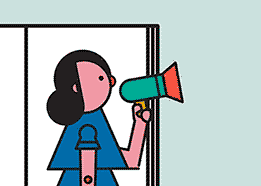5-STAR AMAZON REVIEW
FOR 'SHEEZA'
*****
G'day folks,
Today, I received a great review for one of my favourite books - SHEEZA. This review was provided by one of Australia's most noted poets, Vicki Case. Also, at the bottom of this post is a great comment by an American living in Australia, Tracy Dumpert. Tracy has just finished reading 'Gunnedah Hero' and 'A Drover's Blanket'.
Australia's award winning author - Clancy Tucker, is an
exceptional literary talent. He has the ability to captivate your interest
& emotions from the inaugural page. He then takes you on the emotional
roller-coaster journey his book has in store for you.
Sheeza is no exception. This story absorbed me immediately. I found myself feeling the pain & anguish of a young boy who was struggling to fulfil his dream of owning a kelpie dog. One day fate; & a well-constructed argument with his mother; step in and his dream comes to fruition. His dreams of one day competing in a sheep dog trial with his dog are finally achievable.
However,
after a motor vehicle accident, Danny lost his leg & had it replaced with
an artificial limb; constricting his movement/s somewhat. The kelpie pup that
chose him at the pet shop also had a slight deformity in her leg. Together they
formed an incredible bond & trained regularly with their goal in sight.
On their novice attempt they win a sheep dog trial. Then,
the selfish act of an individual shatters both their lives when Sheeza is
stolen by a truck driver outside the pet shop where she was tied up while Danny
paid the final amount he owed the store owner for her. They search & search
for months but nothing. Then, one fateful day Sheeza is found many, many miles
from home & returned to Dan.
Sheeza had my emotions throughout. I found myself crying tears of joy in some chapters & tears of heartbreak & sorrow in others. I felt as though I was in the story; that it could have easily been me.
I highly recommend this book to everyone. It is a great book that will stay with me forever.
I truly loved this story so much Clancy. Thank you so much for giving it life. It’s another of your great books that would make an amazing movie.
Comments by Tracy Dumpert, regarding
'Gunnedah Hero' and 'A Drover's Blanket':
Clancy,
Hi. I don't normally send emails like this.
However, I finished 'Gunnedah Hero' and 'A Drover's Blanket'. Great books. I
couldn't put them down.
I'm an American living near
Gosford NSW and commuting to Sydney everyday. The books kept me engaged
each day on the train. My only challenge was holding back tears while
people sit beside me on the train and look at me funny, sniffing. I like
to read books dealing with Aussie heritage. And these were great.
Thanks,
Tracy Dumpert
Many thanks to Vicki Case and Tracy Dumpert for taking the time to comment on my work. Love ya work!
I'm ...



















